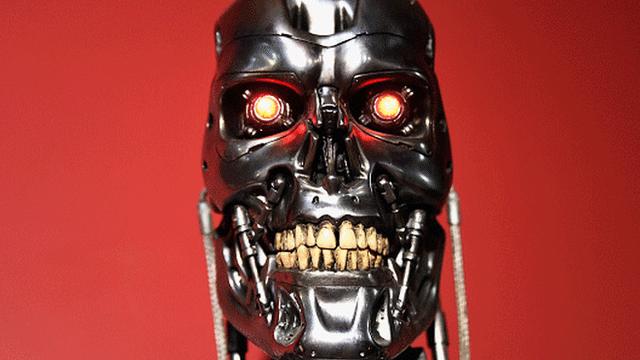AI fighter pilot wins in combat simulation
- Published
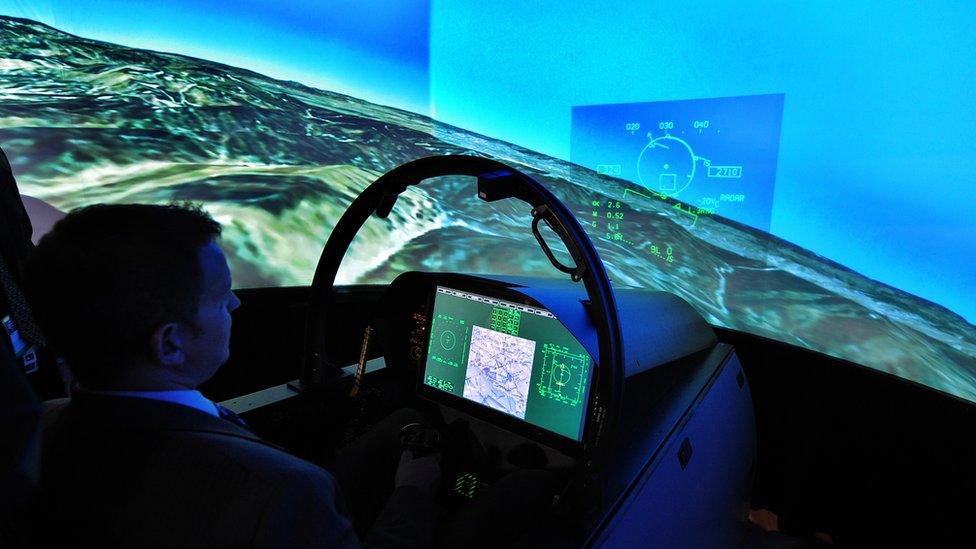
Combat simulators are commonly used to evaluate new fighter jet software
An artificially intelligent fighter pilot system has defeated two attacking jets in a combat simulation.
The AI, known as Alpha, used four virtual jets to successfully defend a coastline against two attacking aircraft - and did not suffer any losses.
Alpha, which was developed by a US team, also triumphed in simulation against a retired human fighter pilot.
One military aviation expert said the results were promising.
In the simulation described in the study, external, both attacking jets - the blue team - had more capable weapons systems.
But Alpha's red team was able to dispatch the enemy planes after performing evasive manoeuvres.
'Deadly opponent'
In their paper, researchers from the University of Cincinnati and defence company Psibernetix describe Alpha as "a deadly opponent".
Reporting on simulated assaults against retired US Air Force colonel Gene Lee, the researchers wrote: "Not only could he not score a kill against it, he was shot out of the air by the reds every time after protracted engagements."
Alpha uses a form of artificial intelligence based on the concept of "fuzzy logic" - in which a computer considers a wide range of options before making a decision.
Because a simulated fighter jet produces so much data for interpretation, it is not always obvious which manoeuvre is most advantageous or, indeed, at what point a weapon should be fired.
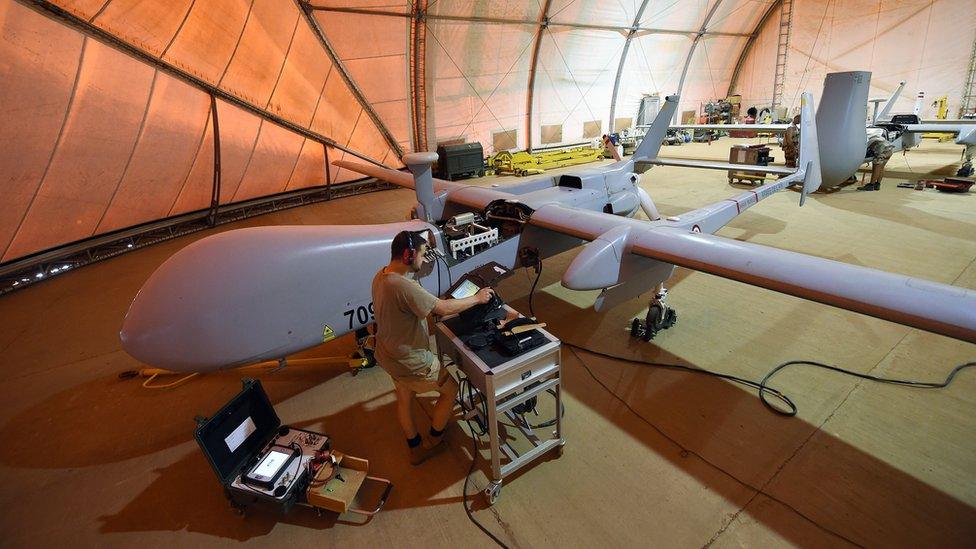
Military aircraft such as unmanned aerial vehicles use increasing levels of automation for flight
Fuzzy logic systems can weigh up the significance of these individual pieces of data before making a broader decision.
The researchers' key achievement here was to do this in real-time with computational efficiency.
"Here, you've got an AI system that seems to be able to deal with the air-to-air environment, which is extraordinarily dynamic, has an extraordinary number of parameters and, in the paper, more than holds its own against a skilled and capable, experienced combat pilot," said Doug Barrie, a military aerospace analyst at think tank IISS.
"It's like a chess master losing out to a computer."
Ethical questions
But Mr Barrie also told the BBC it might not be easy or appropriate to translate the system to real-world combat environments.
If such a system were ever used in a live setting and decided to attack a non-military target, the results could be dire, he said.
"The public furore about that would be immense," he said.
However, at the very least, Mr Barrie said, Alpha had potential as a simulation tool or as a device to help develop better systems for assisting human pilots in the air.
- Published8 June 2016
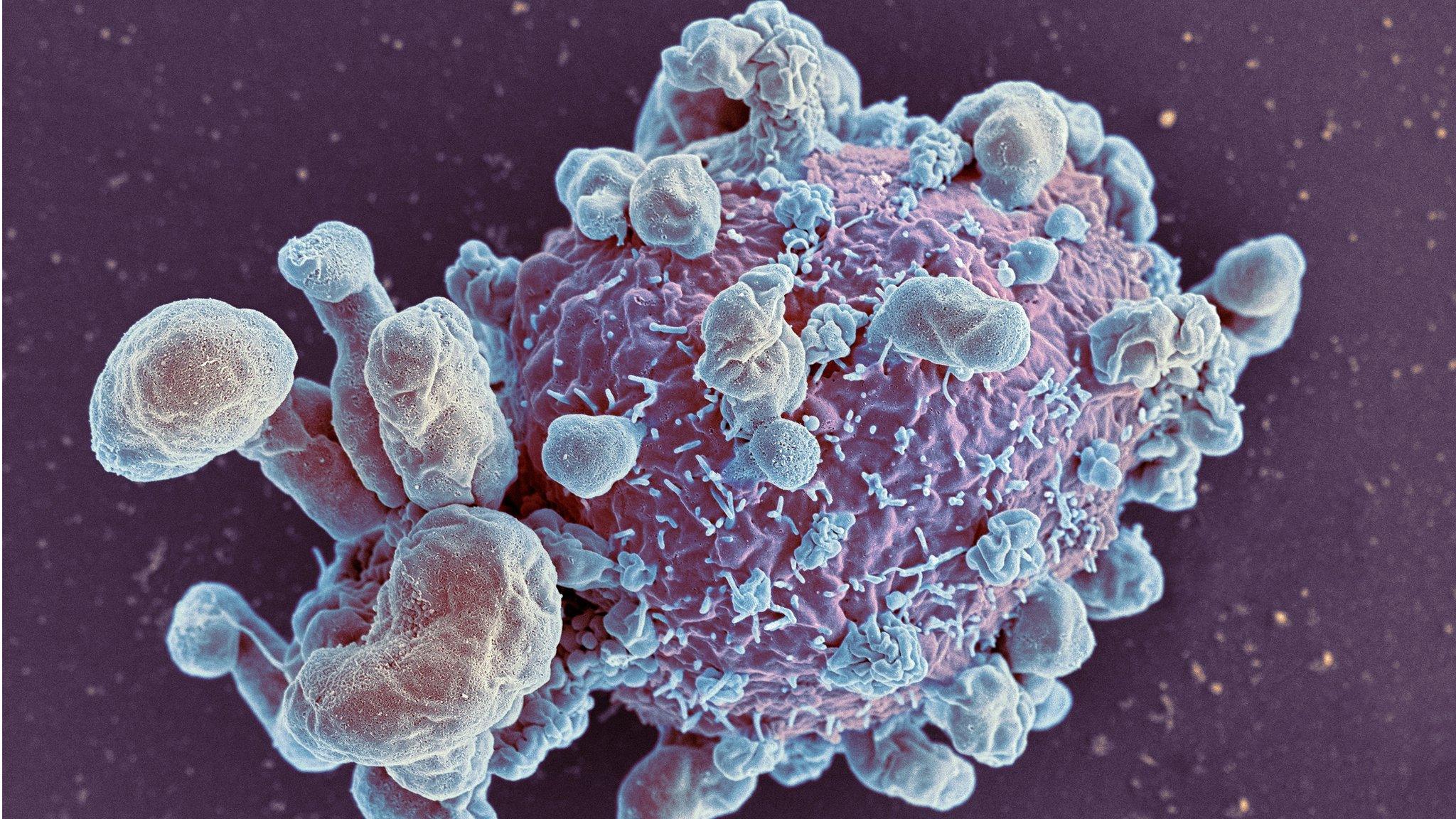
- Published20 May 2016
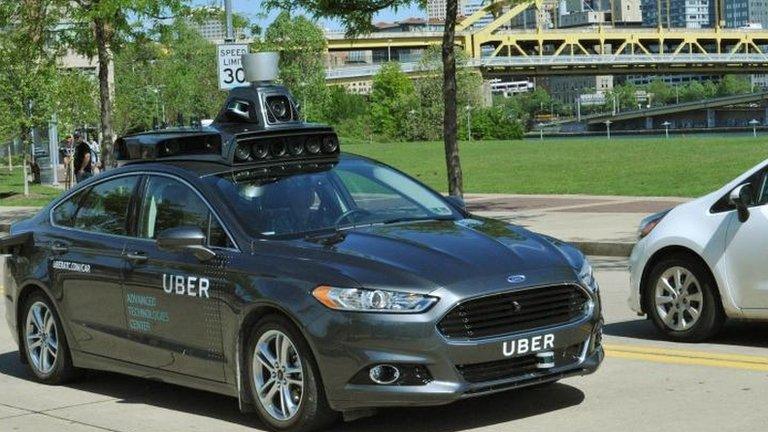
- Published28 September 2015
